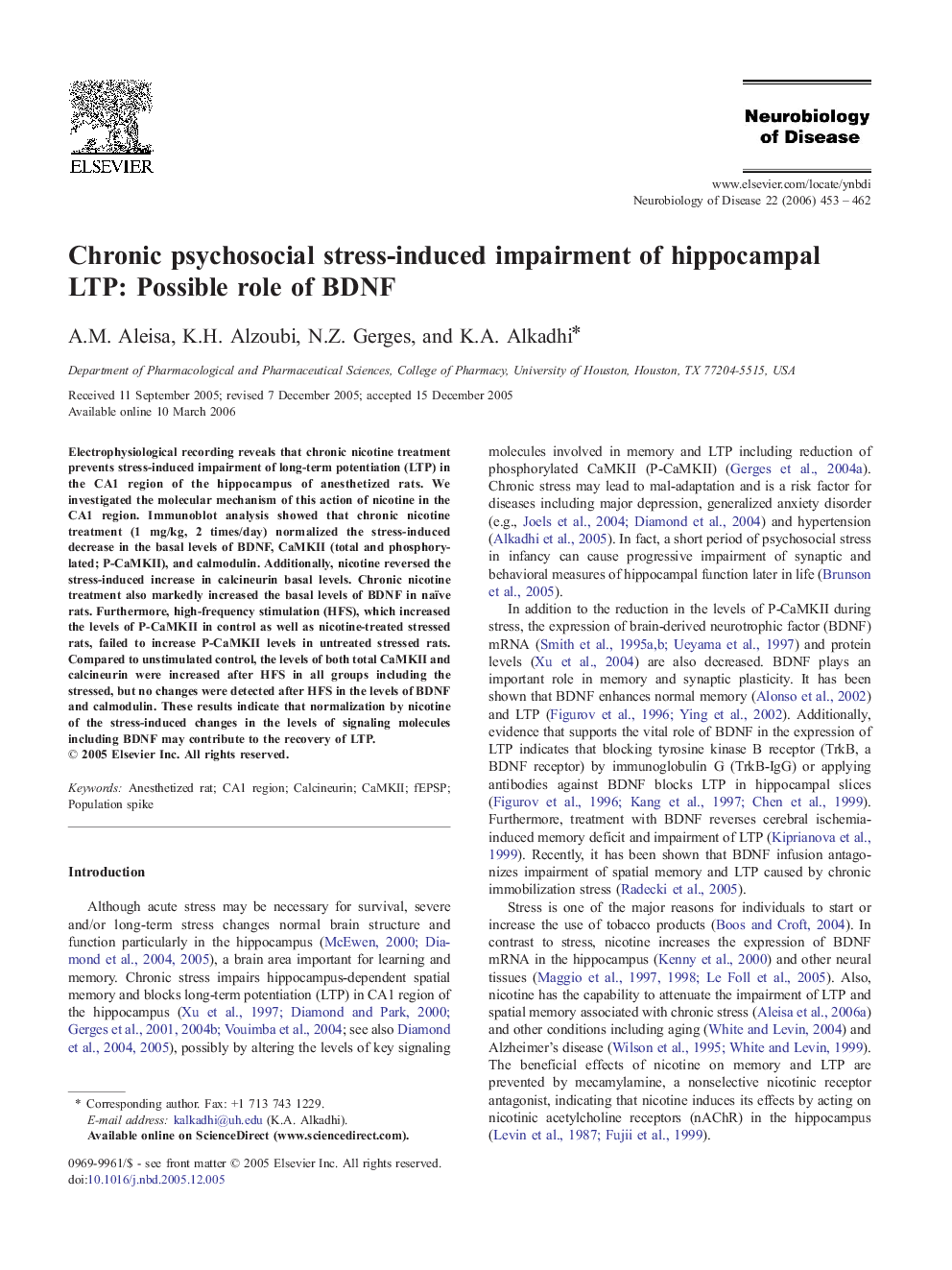| Article ID | Journal | Published Year | Pages | File Type |
|---|---|---|---|---|
| 3070817 | Neurobiology of Disease | 2006 | 10 Pages |
Electrophysiological recording reveals that chronic nicotine treatment prevents stress-induced impairment of long-term potentiation (LTP) in the CA1 region of the hippocampus of anesthetized rats. We investigated the molecular mechanism of this action of nicotine in the CA1 region. Immunoblot analysis showed that chronic nicotine treatment (1 mg/kg, 2 times/day) normalized the stress-induced decrease in the basal levels of BDNF, CaMKII (total and phosphorylated; P-CaMKII), and calmodulin. Additionally, nicotine reversed the stress-induced increase in calcineurin basal levels. Chronic nicotine treatment also markedly increased the basal levels of BDNF in naïve rats. Furthermore, high-frequency stimulation (HFS), which increased the levels of P-CaMKII in control as well as nicotine-treated stressed rats, failed to increase P-CaMKII levels in untreated stressed rats. Compared to unstimulated control, the levels of both total CaMKII and calcineurin were increased after HFS in all groups including the stressed, but no changes were detected after HFS in the levels of BDNF and calmodulin. These results indicate that normalization by nicotine of the stress-induced changes in the levels of signaling molecules including BDNF may contribute to the recovery of LTP.
